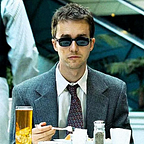What is evil?
Is it really a capacious expression worthy of usage, especially in our present times?
It is, or has became, an inherent nature in humans to promptly perceive their issues or the stories around them through the context of good and evil. A duality that dogged humans’s understanding of what is, what was and what will be. To be good is to satisfy oneself and the other, if not just the latter. To do evil is to harm and to disappoint.
It is more likely for an informed person to respond to this simple duality that it is nothing but a wrong, shallow interpretation of what life really is. For the actual definition of this duality is more relative than what it seems. What is good for us may be evil for others, or otherwise, but is it simply that? As one broods deeper and deeper into this question, it gets more ambiguous and hard to generally define in one conclusion.That is why evil is so elemental when it comes to the study of ethics and morality.
Some, if faced with the same issue, would go back to Hana Arndt's Banality Of Evil. Put in the simplest form, it is the idea that the deed doesn't entirely define the perpetrator. Both of them can be ludicrously contrasting. A killer is not a monster, who rejoices in the killing of his victims, but rather an inconsiderate person whose ''incapability to think; namely to think from the standpoint of somebody else" makes him in the worst of terms with others. To put it shortly, evil is an overrrated, amplifying concept.
Some others would dig deeper into the past, back to the hellenic era. When Socrates concluded that there is no such thing as evil but only the lack of knowledge. He argued that no one acts harmfuly with the end of doing evil, but instead as a means for self-benifit.
Even though given these approaches, I still find it ambiguous to define what is good and more importantly what is evil. The important issue that is worth notice here then isn't the final definition of evil but the opacity of its state. Why is it that hard and obscure to define a concept that followed the human intellect since the beginning of history? Are we so stupid to just find it out? Or is it simply a sandcastle being built in the depths of an ocean over and over again to no avail?
To infer as bluntly as possible, evil is not an existent phenomenon but a created one with the specific need to influence people at a specific time when everyone was so desperate to add meaning to his desperate wretched existence by giving life a context or a narrative. Demagogues and kings since the beginning of recorded history kept using the concept of evil to narrativize our lives into the context that would fit their ends; to incite order and and full capitulation to their will.
All in all, it is time, I think, for everyone to begin thinking of an alternative that would define a wrongdoer as an inconsiderate strayer who happened to be as such rather than an evil monster. To do such isn’t, in any way, a validation of others’ atrocities, but a different approach that fits a more complex world. Evil is not a long standing concept that applies to every, if not any, person and every issue. It can easily fall down as unvalid when confronted with other issues like revenge and survival. So, isn’t it the time for the 21st century population to look at the bad from a broader more complex angle and to search for a better word or concept that reflects the complexities of our time? And if such thing is to happen, how could it be?
